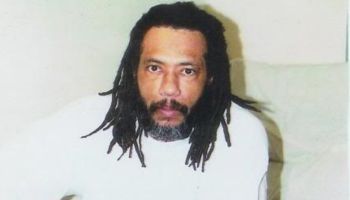Sarah Hicks Williams was once a defiant, 19th-century abolitionist from New York state whose racial views drastically changed after marrying southern slave owner, Benjamin Williams, and settling on his North Carolina plantation, according to The Guardian.
A collection of letters at The Southern Historical Collection, which will go on display during Black History Month in Norwich, United Kingdom, reveal that Williams’ attitude about slavery and Blacks took a drastic turn several years after The South lost the Civil War.
Want to Keep Up With NewsOne.com? LIKE Us On Facebook!
Williams’ personal letters, which are available digitally, reveal that she was initially conflicted about marrying the North Carolina slave owner. A letter dated March 7, 1953 shows her reservations:
There are but two things that I know of to dislike in the man. One is his owning slaves. I cannot make it seem right, and yet, perhaps there may be my sphere of usefulness. The other is not being a professing Christian. Will you both give me your candid opinion in regards to him? I shall not answer it till I hear from you, and please return his letter in yours.
She eventually went against her beliefs and married him anyway. Though her personal letters reveal that her abolitionist views may not have been sincere. In fact, she seemed to have grown comfortable with the institution of slavery.
The Guardian has more:
She accepted (Benjamin Williams’) proposal on her 26th birthday in March 1853, and was soon writing that slaves were treated as family – “indeed I think that they are treated with more familiarity than many northern servants” – and that she would be reluctant to move to the north lest their slaves be sold to less sympathetic owners: the idea of freeing them seems never even to have crossed her mind.
By April 1861, on the eve of the American civil war, she was stockpiling hand-knitted stockings for the winter, and writing: “before we shall buy of Black Republicans, we shall go barefooted and wear homespun.”
Her marriage to her slave-owning husband caused permanent rifts with some family members–especially her sister Mary who ended up marrying a noted anti-slavery campaigner who regularly housed slaves fleeing the south.
Rebecca Fraser of the University of East Anglia’s School of American Studies told The Guardian that Williams’ shift in attitude was quite extreme.
“At the start you can see that she found it strange to have slaves waiting on her. But she goes from having a moral reforming attitude to becoming a competent slave-holding mistress – which I found very shocking.”
“These letters have been preserved for posterity. She’s not well known, but that’s why I find them so interesting. The letters are important historically because they describe how people lived and experienced transition and change in their lives. Also they were never written for public consumption so they are very frank.”
Williams’ died long after the slave trade ended in the U.S. at the age of 92 in 1917. But do you think that Williams’ letters are an exception to how most White abolitionists felt about slavery? Or do you believe that most of them ultimately viewed Blacks as inferior in the end?
Click here to read Sarah Hicks Williams’ letters.
















